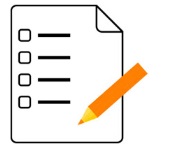Managing medicines: Licensed and unlicensed medicines
A ‘licensed medicine’ is a medicine that has a marketing authorisation from the UK Medicines & Healthcare products Regulatory Agency (MHRA), enabling it to be prescribed in the UK. The marketing authorisation is an indication that the medicine has been appropriately tested in clinical trials to evaluate its efficacy and safety, and that the dose and method of administration are appropriate, and so on. Most medicines with a marketing authorisation can be found on the emc website, in the BNF, or on a dedicated section of the MHRA website.An ‘unlicensed medicine’ is one without a marketing authorisation for the UK. It could, for example, be a medicine that is licensed as a medicine abroad (e.g. ajmaline), or it could be a nutritional supplement (e.g. some vitamin preparations).
A so-called ‘special’ is a formulation that is manufactured to meet the special clinical needs of an individual patient when a licensed product isn’t suitable. It might, for example, be an unusual strength, an oral liquid instead of a tablet, or be free from a particular additive. The Royal Pharmaceutical Society provides detailed guidance on supplying ‘specials’.
When a medicine is licensed to treat one condition but is prescribed to treat something else instead, this is said to be ‘off-label’ or ‘off-licence’ prescribing; some people would call this an ‘unlicensed indication’. Any manipulation of a medicine that results in a change to its original formulation or how it is administered would also be ‘off-label’ or unlicensed, e.g. giving an injectable medicine by the oral route, crushing tablets or opening up capsules for administration by an enteral feeding tube, mixing a liquid medicine with soft food to make it taste better.
There may be less evidence to support the quality, safety and efficacy of an unlicensed medicine or a medicine prescribed off-label. This doesn’t mean that they shouldn’t be used, but it means patients and prescribers need to make an informed decision and consider all options before deciding to go ahead. With their knowledge and expertise, pharmacists have a key role to play in this decision-making process and in managing the risks associated with using unlicensed medicines.
Unlicensed medicines should be prescribed and supplied only if the prescriber is satisfied that the patient has a special clinical need which cannot be met by any available licensed medicine. MHRA guidance on the hierarchy for the use of unlicensed medicines advises off-label use of a UK licensed product is preferable to use of a medicine that does not hold a UK licence (imported medicines or manufactured specials).
Appropriate information should be available for the patient and for any healthcare professional who may be administering the medicine. Prescribers and pharmacists should monitor such patients carefully. You can read more on understanding unlicensed medicines in general on the Specialist Pharmacist Service website.
Many medicines taken by children are 'off-label' or unlicensed. There is a helpful description of what this means for children and parents on the Medicines For Children website. Other areas where off-label prescribing is widespread are palliative care and intensive care.
Many medicines taken by children are 'off-label' or unlicensed. There is a helpful description of what this means for children and parents on the Medicines For Children website. Other areas where off-label prescribing is widespread are palliative care and intensive care.
- Find out where your dispensary keeps unlicensed medicines.
- Is there an SOP for supplying unlicensed medicines in your trust?
- Talk to your paediatrics, palliative care or ITU pharmacist about unlicensed medicines. Why do you think that many medicines used in these situations are not licensed? What advice can they offer on making sure unlicensed medicines are used safely and appropriately in these areas?
Page 7 of 13. NEXT PAGE ›








